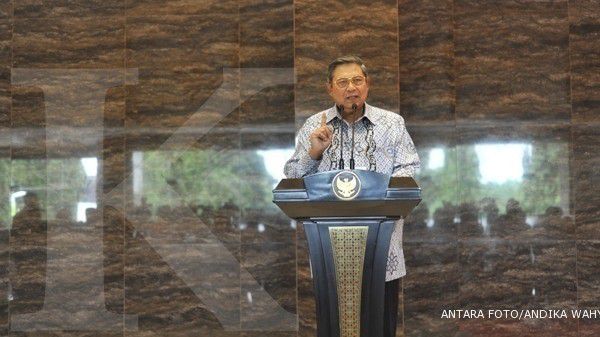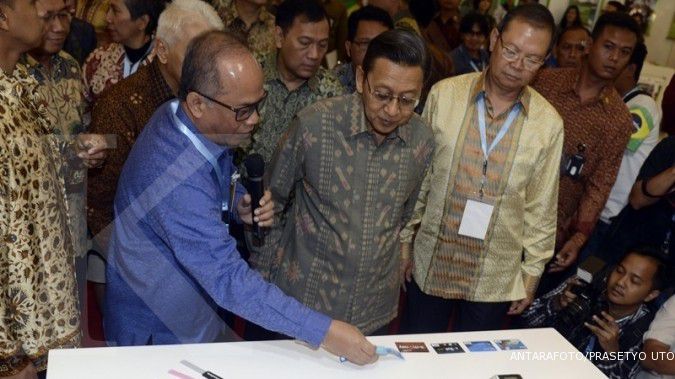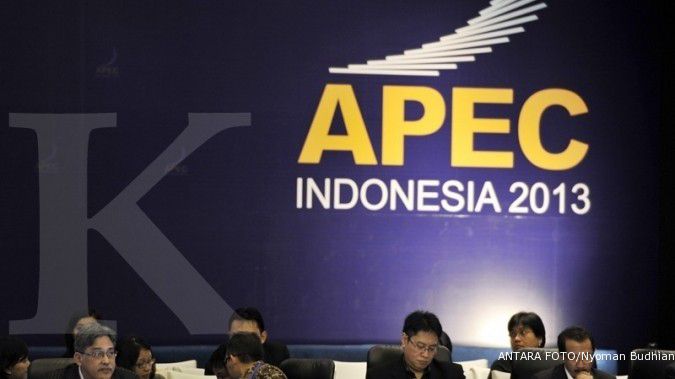JAKARTA. Discussion of subsidized energy prices between government and The People's Representative Council (DPR) shouldn't take long. It's because the government doesn't need approval from the council and has full power to hoist the price of fuel oil (BBM), LPG, and subsidized electricity.
This power regulated in the Government Regulation (PP) of the National Energy Policy approved by council through a plenary session, yesterday. Article 20 expressly mentions this policy, which the government can set the price of energy in the market based on economic value.
However, interruptions occurred in the plenary session. It's because the draft National Energy Policy PP says the economic price is already contain production costs, environmental costs, the cost of conservation, as well as profit. The word "profit" invited strong protests from the people's representatives because it's not clear, whether the benefit is for the country, the people (consumers), or the entrepreneurs.
The debate ended after an agreement reached following lobby meeting between house leaders, factions, and government. The deal: the word "profit" is removed.
However, the appropriate meaning, economical price is the price in the market. That is, the price according to the law of supply and demand, without the effect of the subsidy. "And it does not conform with the spirit of the law that prohibits submitting fuel prices to the market mechanism," said Maruarar Sirait, Member of Parliament from Indonesian Democratic Party-Struggle (PDI-P).
If the price of energy refers to the mechanism of the market, the public would be burdened. Remember, the increase in fuel price from Rp 4,500 to Rp 6,500 per liter last year had jacked the price of goods and services.
Even so, the Chairman of Economic Research, Observation, and Development from Chamber of Commerce and Industry (Kadin) Didik J. Rachbini said , the government should revise its energy subsidy policy. The reason, the numbers continue to swell and the energy subsidies burden the state budget.
Currently, energy subsidies are greater than infrastructure spending. Therefore, if energy subsidies continue to rise, infrastructure development will be slow.
Government has full power to hoist the price
January 29, 2014, 11.51 AM
/2013/09/19/501704995.jpg)
ILUSTRASI. Pepaya, buah yang efektif menurunkan kolesterol tinggi.
Reporter: Asep Munazat Zatnika
| Editor: Amal Ihsan
Latest News
-
March 02, 2026, 04.45 PM
Indonesia has Seized 5 Million Hectares of Palm Oil Plantations, Task Force Says
-
March 02, 2026, 01.10 PM
Asian Assets Slide as Mideast Strikes Spark Oil Spike, Haven Rush
-
March 02, 2026, 10.49 AM
Bank Indonesia Monitoring Market Movements in Response to Conflict in Middle East
-
February 25, 2026, 08.28 PM
Inpex to Solicit Bids for Construction of Indonesia's Abadi LNG Project in Mid-2026
-
February 24, 2026, 03.38 PM
Eni to Reach Final Investment Decision for Indonesia Gas Projects Next Month
-
February 24, 2026, 01.00 PM
Asia Stocks Try to Steady after Wall Street Selloff Sims Mood
-
February 23, 2026, 04.50 PM
Wall Street Futures and Dollar Slide on Trump Tariff Tumult
-
February 23, 2026, 02.17 PM
Indonesia's Government Spending Jumps 26% in January 2026
-
February 23, 2026, 01.47 PM
Indonesia's Government Spending Jumps 26% in January














